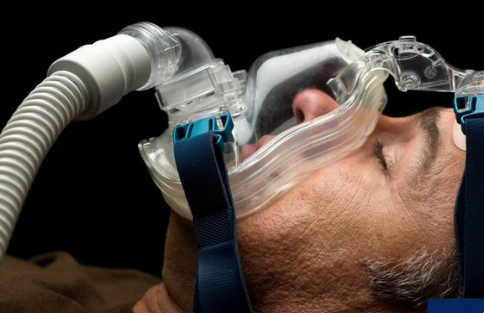Experts have revealed that a new drug, sulthiame, may offer significant relief for those suffering from obstructive sleep apnoea, a sleep disorder that causes stop-start breathing during sleep. This condition often results in loud snoring, gasping for air, and frequent awakenings. If left untreated, sleep apnoea can lead to serious health problems such as high blood pressure, diabetes, heart disease, and even strokes.
Daily pill could halve snoring symptoms for millions. A trial of sulthiame, currently used for childhood epilepsy, saw positive results treating symptoms of obstructive sleep apnoea https://t.co/gMDI55kAMb
— Carl Hindy, Ph.D., HSP, Clinical Psychologist (@DrCarlHindy) September 10, 2024
Traditionally, treatment has involved the use of Continuous Positive Airway Pressure (CPAP) machines, which require patients to wear a mask that forces air into the airways to keep them open during sleep. However, many find these machines uncomfortable and difficult to use over time, prompting the need for alternative treatments.
In a recent study presented at the European Respiratory Society congress in Vienna, sulthiame was tested as a potential new option for those who cannot tolerate or refuse CPAP machines. According to Professor Jan Hedner from the University of Gothenburg, who led the research, this new treatment offers a more convenient solution that could improve patients’ quality of life.
The study involved 298 participants across Europe who were either unable or unwilling to use CPAP machines. The patients were given varying doses of sulthiame or a placebo over a 12-week period. Researchers monitored several key indicators, including breathing, oxygen levels in the blood, heart rhythm, and sleep quality, using tests conducted at the beginning of the study, then again at four and 12 weeks.
The results were impressive. In the group that received the highest dose of sulthiame (300mg), breathing pauses decreased by nearly 40%, and oxygen levels in the blood significantly improved. Patients also reported feeling less sleepy during the day, a common issue for those with sleep apnoea. These findings suggest that sulthiame may not only improve sleep quality but also help alleviate the daytime fatigue that plagues many sleep apnoea sufferers.
Originally developed for childhood epilepsy, sulthiame works by inhibiting an enzyme in the brain that regulates electrical activity. While it is not yet licensed in the UK, the drug is already available in countries such as Australia, the U.S., and parts of Europe. Researchers believe that its ability to manage electrical discharges in the brain could also help regulate breathing patterns during sleep, making it a promising candidate for treating sleep apnoea.
Though the initial findings are encouraging, Professor Hedner cautioned that larger clinical trials are needed to confirm the drug’s long-term effectiveness and safety for sleep apnoea patients. Researchers are preparing for a phase III study to further investigate the drug’s respiratory benefits.
Other experts in the field, such as Professor Sophia Schiz from the University of Crete, are also optimistic about the potential of sulthiame. Schiz, who was not involved in the research, acknowledged the importance of exploring drug-based treatments as an alternative to mechanical devices like CPAP. However, she stressed the need for further testing to better understand the drug’s long-term effects and any possible side effects.
At #ERSCongress: Among patients with obstructive sleep apnea (#OSA), receipt of #sulthiame for 15 weeks reduced
breathing pauses during #sleep and daytime #sleepiness
. @EuroRespSoc
Read more
https://t.co/0a8hkD6GlF
— Healio Pulmonology (@HealioPulm) September 11, 2024
Erika Radford, head of health advice at Asthma and Lung UK, expressed excitement about the research, noting that it represents a significant step toward providing patients with a drug-based alternative to breathing equipment. As researchers continue to study sulthiame and other potential treatments, there is hope that those suffering from sleep apnoea may soon have more convenient options for managing their condition.
Key Points:
i. Sulthiame shows potential as a drug-based alternative for treating obstructive sleep apnoea.
ii. Traditional treatment involves CPAP machines, which many patients find uncomfortable.
iii. In a study, sulthiame reduced breathing pauses by nearly 40% and improved oxygen levels in the blood.
iv. The drug is already used for epilepsy and works by regulating brain activity.
v. Larger clinical trials are needed to confirm the drug’s effectiveness and safety for sleep apnoea patients.
Susan Guglielmo – Reprinted with permission of Whatfinger News
 Steph & Jimmy lead Warriors + OKC’s HUGE Game 1 win! | SportsCenter
Steph & Jimmy lead Warriors + OKC’s HUGE Game 1 win! | SportsCenter John Cena breaks Ric Flair’s record with 17th world championship
John Cena breaks Ric Flair’s record with 17th world championship

